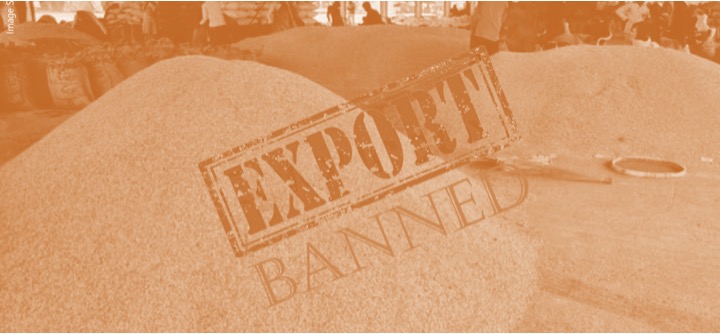The government may extend its ban on exports of de-oiled rice bran (DORB)—a key ingredient of cattle feed—until March next year to keep milk prices in check, a senior official said.
DORB, which is derived when crude oil is extracted from rice bran, is commonly used in animal nutrition products catering to cattle, poultry, horse, pet care, aquaculture (aquafeed), and swine industries, with approximately 80% used in cattle feed.
The fear is that higher exports may hit milk supplies in the domestic market, driving prices further up.
All-India average retail milk prices in November went up by 6% to ₹58.4 a litre from ₹55 a litre during the corresponding period last year.
The Solvent Extractors’ Association of India (SEA) wrote to the animal husbandry and dairying department, requesting to not extend the ban as “it could have far-reaching negative consequences for multiple sectors”.
“Extension of restrictions could adversely affect paddy farmers, hindering them from realizing better returns on their produce. Moreover, the industry benefits from the export of DORB through enhanced raw material availability for processing, leading to better capacity utilization, increased employment, and significant value addition,” SEA wrote in the letter, a copy of which is available with Mint.
Additionally, by exporting DORB, India gains a measure of self-sufficiency in oil production.
“India, over the years’ effort, has successfully developed an export market for DORB, primarily serving Vietnam, Thailand, Bangladesh and other Asian countries, positioning us as a reliable supplier in the international market. An abrupt change in export policy risks damaging this hard-earned market standing.”
Since the export ban, rice bran processors in eastern India, a significant producer, have been contemplating shutting down operations, which would impact the rice milling industry and reduce rice bran oil production.
With the start of the new season, processing of rice bran has picked up and availability of de-oiled rice bran has improved, which can be seen from the price falling from ₹18,000 per tonne on 28 July to ₹13,500 per tonne now, said Ajay Jhunjhunwala, president of SEA.
“In view of these facts and the sharp fall in the price of DORB, we requested the government to lift the ban after 30 November.”
Unpredictable weather conditions had also affected the availability of feed and fodder.
Queries sent to the animal husbandry and dairying department remained unanswered at press time.The government banned exports of DORB in July, which is in effect till November-end, amid concerns over increasing exports of the cattle feed amid poor paddy crop prospect, pushing domestic prices up.
Source : The Mint Nov 23rd 2023 by Puja Das title edited by Dairynews7x7

